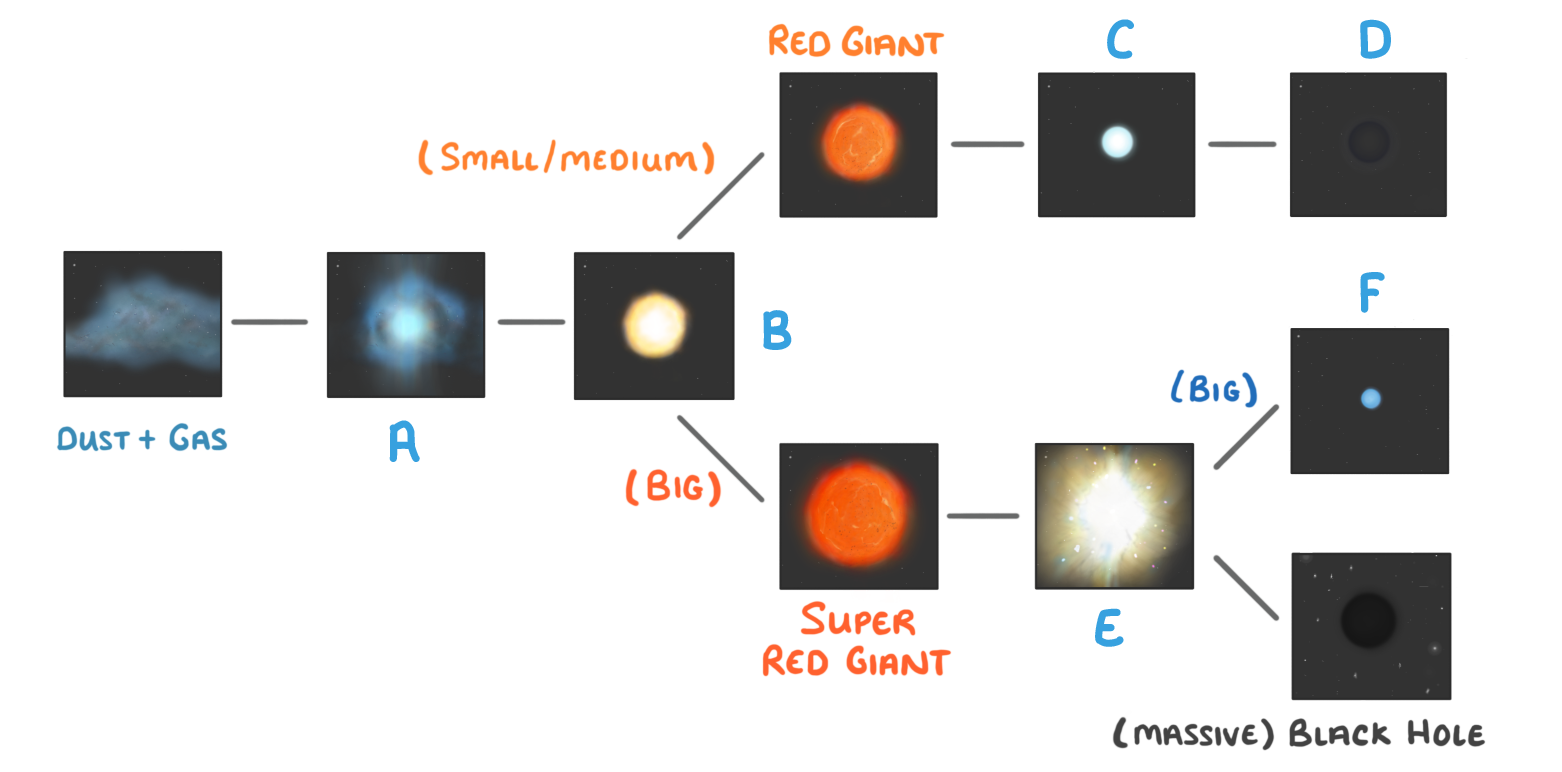Life Cycle of Stars
This lesson covers:
- The life cycle of stars
- Details of each stage, including: nebulas, protostars, main sequence stars, red giants, red super giants, white and black dwarfs, neutron stars, and black holes
What is a nebula?
A young star
A large cloud of dust and gas
A star at the end of its life
|

What pulls the gas and dust in a nebula together, to form a protostar?
The attraction of gravity
The electrostatic attraction between particles
Space pressure
|
As a protostar grows in size and attracts more particles from the surrounding nebula, what changes may take place within it?
(Select all that apply)
The star explodes
Nuclear fusion could initiate
It becomes more dense
The temperature increases
The protostar dissipates back into a nebula
|
Once nuclear fusion starts in a protostar, what does it become?
A supernova
A main sequence star
A white dwarf
A black hole
|
inward / outward / sideways
The energy released from nuclear fusion creates an pressure that balances against the pressure from gravity.
|
What stage of a star's life cycle is the sun currently in?
(Only the star at the centre of our solar system is called the 'sun'. All other stars are just stars)
Main sequence star
Nebula
Red giant
Protostar
|

After the main sequence, what could a star become?
A red super giant
A red giant
A brown giant
A green giant
|
It's important that you know which elements nuclear fusion forms at each stage of a stars life cycle.
A sequence star only fuses together hydrogen to make .
Then in red giants or red giants, nuclear fusion can form heavier elements up to iron on the periodic table.
Elements heavier than iron are formed by .
|
For a red giant, what happens next in the star's lifecycle?
It collapses into a black hole
It becomes a white dwarf and then a black dwarf
It becomes a black dwarf and then a white dwarf
It becomes a neutron star
|

For a red super giant, what happens next in the star's lifecycle?
It becomes a white dwarf
It becomes a black dwarf
It explodes as a supernova
|
sky / universe / giant / elements
A red super eventually explodes into a supernova. This can form even heavier than iron. These elements are ejected all across the universe.
|
What two alternative things might happen to a star after a supernova explosion?
Become a white dwarf
Become a black dwarf
Condense into a neutron star
Collapse into a black hole
|

Match the letters A to F on the diagram above with the following labels:
Main sequence star:
Neutron star:
White dwarf:
Protostar:
Supernova:
Black dwarf:
|